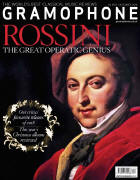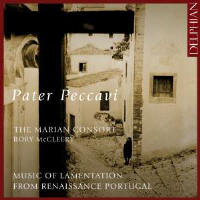Texte paru dans: / Appeared in: |
|
 |
Outil de traduction (Très approximatif) |
|
Reviewer:
Edward
Breen This exquisite late-Renaissance Portuguese polyphonic repertoire is as richly expressive as it is politically poised. Written under the rule of the Spanish Habsburgs from 1580 to 1640, works by Duarte Lobo (c1565-1646) and Manuel Cardoso (15661650) are frequently drawn towards texts of mourning and lamentation as they long for an end to foreign rule and yearn for the restoration of a Portuguese monarchy. All this becomes more stylistically vivid when we note both composers outlived Monteverdi, albeit only slightly. This beautiful new album from The Marian Consort is surely one of the best one-to-a-part ensemble recordings of this repertoire. Throughout the programme they nurture a warm blend while drawing out long polyphonic threads to expressive ends. The disc opens with Cardoso’s six-voice Lamentations for Maunday Thursday from his final published collection; unhurried, expressive and with a pleasing core to their sound, the sopranos in particular create a confident, glistening tone with generous phrasing. Several larger ensembles, notably The Sixteen (‘Renaissance Portugal: The Sacred Music of Cardoso and Lôbo’ – Coro, 8/94) and Westminster Cathedral Choir (‘Masterpieces of Portuguese Polyphony’ – Hyperion) have recorded similarly impassioned Cardoso performances and as such are a likely influence. The Marian Consort, however, add an intensely charged intimacy to the mix. The premiere recording of Lobo’s Missa Veni Domine forms the backbone to the programme. It is a parody/imitation work drawing on a motet by Palestrina; Rory McCleery explains potential Sebastianist connections with this text in his booklet notes (the hoped for return of King Sebastian lost in a military campaign of 1578). I love this performance, full of energy and highly responsive to the text. The Sanctus-Benedictus in particular shows the flexibility of this ensemble in responding to different textures. The album highlight for me, however, is Circumdederunt me, a setting of a funeral text by Aires Fernandez. Here the phrases reach upwards and overlap in great arches, which the singers perform with a yearning intensity which is just exquisite.
|
|




